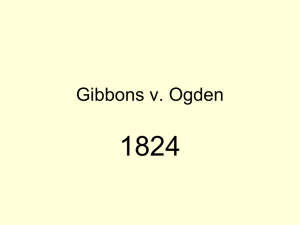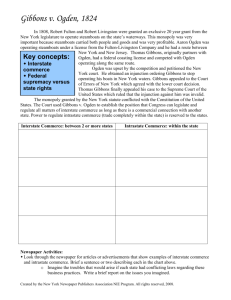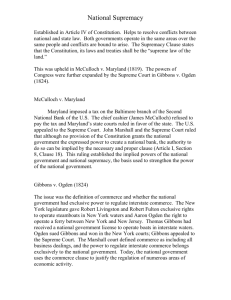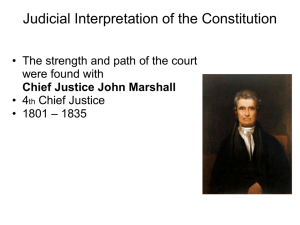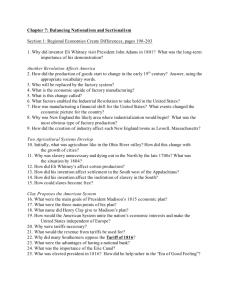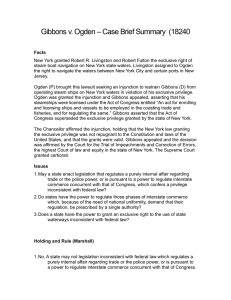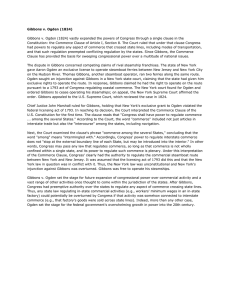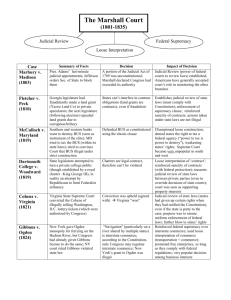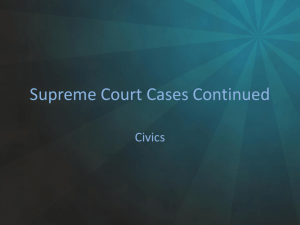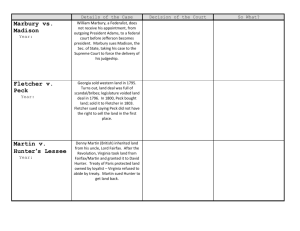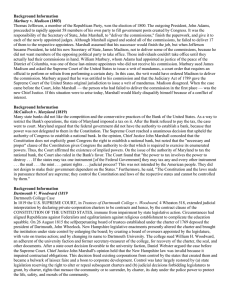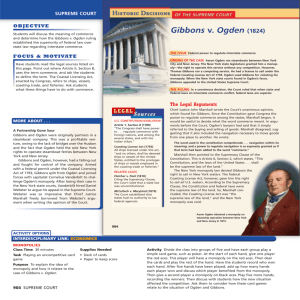Gibbons v. Ogden (1924)
advertisement
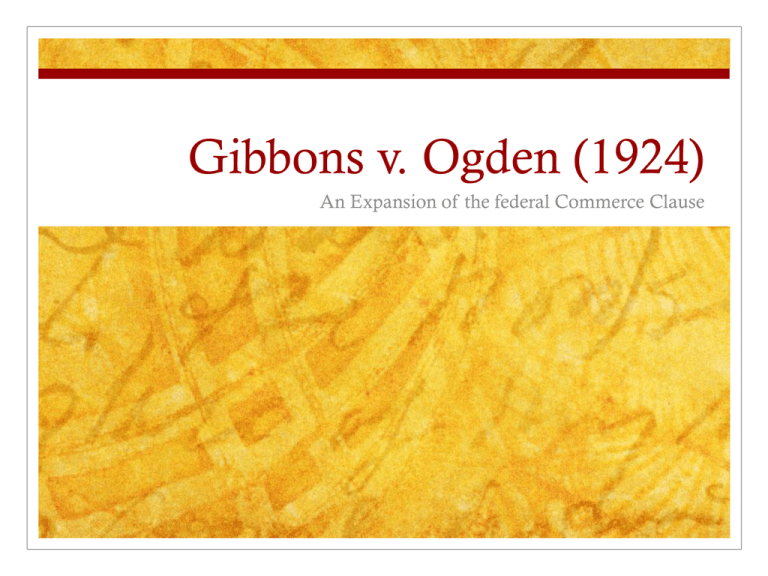
Gibbons v. Ogden (1924) An Expansion of the federal Commerce Clause Background The New York Legislature had passed a law giving a group of investors a monopoly over steamship travel in the state of New York. Two individuals given this permission were Robert Fulton and Aaron Ogden Another steamship trader, Thomas Gibbons, wished to use the New York waterways for business and had received federal permission to do so Gibbons was denied permission to the waterways by the New York state which used its law as enforcement Background (cont) Aaron Ogden, the plaintiff, had purchased an interest in the monopoly to operate steamboats that New York state had granted to Robert Fulton and Robert Livingston. Ogden brought suit in New York against Thomas Gibbons, the defendant, for operating a rival steamboat service between New York City and the New Jersey ports. Gibbons lost the case to Ogden but appealed it and the case was taken to the Supreme Court where he argued that the Act of Congress giving him permission to use the waterways superseded the exclusive privilege the state had granted the contractors Ruling of the Case The majority opinion, written by Chief Justice John Marshall, ruled in favor of Gibbons. Their reasoning stated that the Constitution contained the Commerce Clause, which granted the federal government permission to regulate commerce (in this case trade) wherever it may be. That included within the borders of a state, in this case New York state. Significance of Case Gibbons v. Ogden cemented the power of federal laws over state laws by upholding Gibbon’s federal permission over the state law. Chief Justice John Marshall stated that the New York monopoly was an unconstitutional interference with the power of Congress over interstate commerce. He refuted the belief that the states and the federal government are equal sovereignties. Federal power is specifically enumerated, but within its sphere Congress is supreme. State legislation may be enacted in areas reserved to the federal government only if concurrent jurisdiction is feasible (as in the case of taxation). Significance (cont) Consequences: A state may not uphold legislation inconsistent with federal law which regulates a purely internal affair regarding trade or the police power, or is pursuant to a power to regulate interstate commerce concurrent with that of Congress. States do not have the power to regulate those phases of interstate commerce which, because of the need of national uniformity, demand that their regulation, be prescribed by a single authority. A state does not have the power to grant an exclusive right to the use of state navigable waters inconsistent with federal law. (http://www.lawnix.com/cases/gibbonsogden.html)
